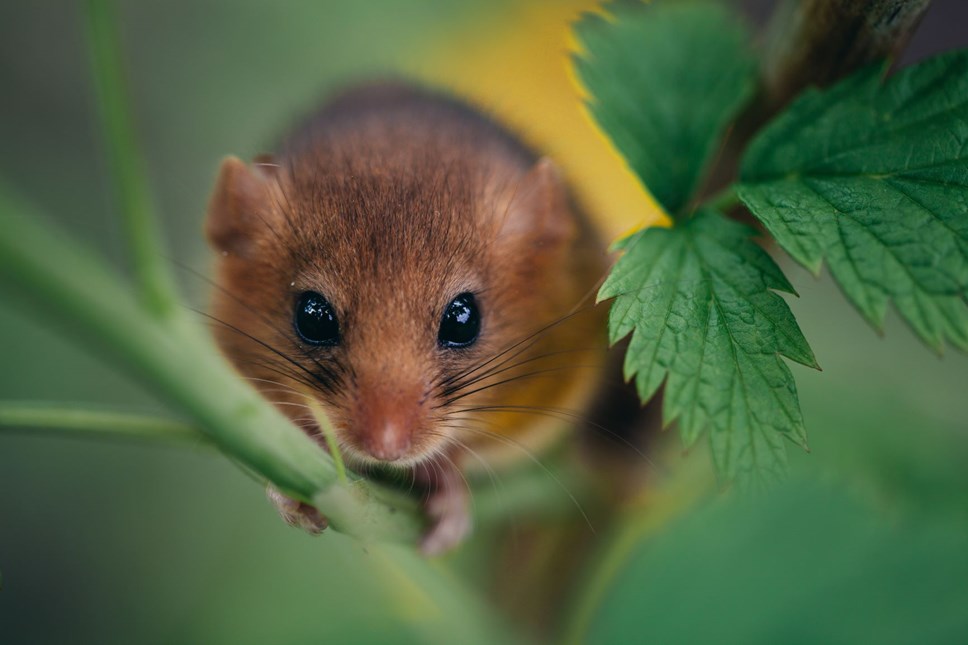
Threatened native dormouse could make northern comeback
It’s little, lovable and living on the edge after Britain’s only native dormouse suffered a massive 51 percent drop in its population since 2000.
A University of Cumbria PhD student is now investigating how climate change is affecting the minute mammal to aid reintroduction programmes, which include bringing the hazel dormouse back to northern England.
Keswick-based Rachel Findlay-Robinson explained the tiny tot rodents, no bigger than eight centimetres long and weighing around 20-grammes, were traditionally seen across England and Wales.
According to State of Britain’s Dormice 2019 report, over half the population has disappeared in the past 20-years and the hazel is now extinct in 12 English counties.
Studying at the university’s Ambleside campus, Rachel said while Wales still has populations, the rest were largely confined to southern England.
She added: “A big 72 percent decline occurred between 1992 and 2014. Since 2000, numbers have carried on decreasing by around 3.8 percent every year.”
Finding fame through Alice in Wonderland, both in the book and Disney film, the hazel dormouse has long captured hearts as being a cute shy, sleepy little creature.
For Rachel, who has studied ground squirrels in Canada and caracal movement in South Africa, the more she read about miniature muscardinus avellanarius, the more interested she became.
She explained: “My research will improve our understanding of how climate change is likely to affect hazel dormouse populations and if we can modify the current reintroduction programme in response.
“For instance, the majority are in the south where winters are warming faster than the north. As dormice hibernate in winter, a process closely linked to air temperature, it is possible that warmer conditions will not be good for them.
“Also, because dormice seldom travel more than 70-metres from their nest, and don’t like crossing open spaces, it is unlikely they would be able to expand their range northwards alone and need help through reintroduction programmes.”
Hazel dormice will feature in a forthcoming four-year National Lottery Heritage Fund Back on our Map (BooM) project to reinstate threatened species in South Cumbria.
Although there are 29 different species worldwide, the hazel is the only UK native and has its own National Dormouse Monitoring Programme, managed by wildlife charity, People’s Trust for Endangered Species (PTES), for over 25 years.
Dormice are a good indicator of the health of our woodlands. They do best when woods are well-managed, have good undergrowth and a variety of plants for food, explained Rachel.
Entering the final year of her doctorate, she said with Covid-19 interrupting field studies, she was working on long-term data analysis.
She said: “It’s a fascinating subject for me, particularly as I’ve already studied how weather affects hibernation patterns in Columbian ground squirrels in Canada.
“Dormice are interesting, because they hibernate, unusual among British wildlife - bats and hedgehogs are the only others that sleep for the winter.
“Also, although they are closely related to squirrels, they are classed as rodents, but have a very different lifestyle to mice, voles or rats. They live much longer, up to four-years, and have fewer babies.
“People’s Trust for Endangered Species (PTES) are at the forefront of dormouse conservation in the UK and are funding the fieldwork part of my research.”
PTES dormouse and training officer, Ian White, said: “The dramatic decline of dormice is due to a lack of woodland management and the loss of many of our hedgerows that link woods in the landscape.
“Climate change is also a factor and the one that we understand least about. Rachel’s work will help us understand the impacts of our changing climate on dormouse survival, and will help us plan how we can help the species in the future”
Find out more on https://ptes.org/campaigns/dormice/
PTES image shows a hazel dormouse, picture credit Angyalosi Beata Shutterstock
For interview requests please contact Karen Barden, 015395 52366 or 07793 083106
